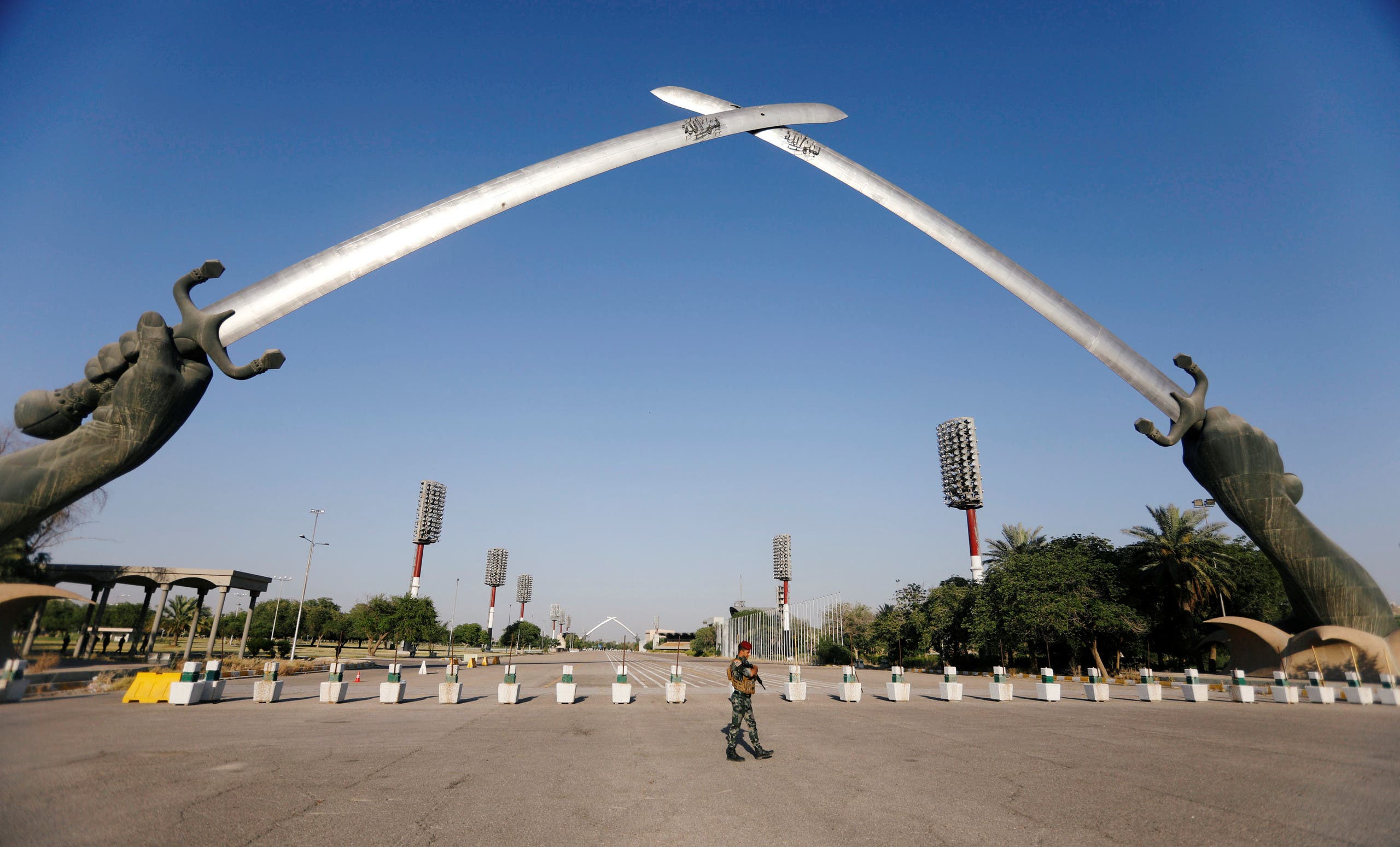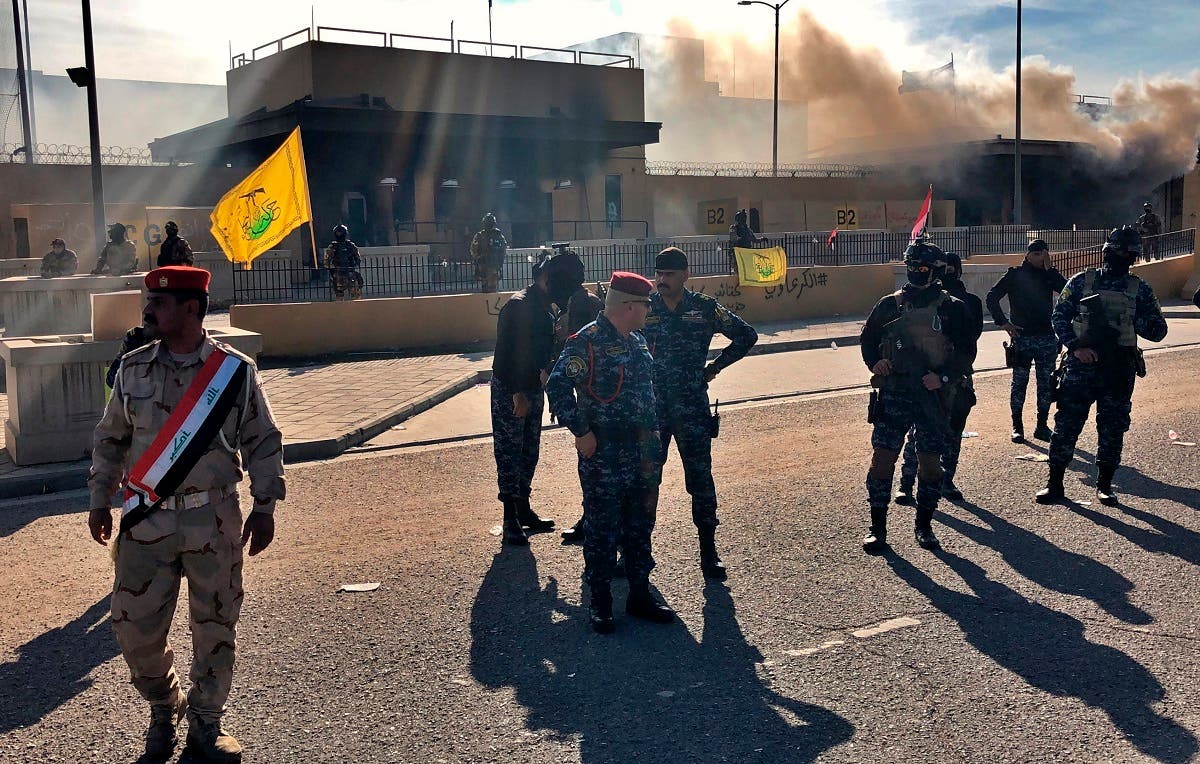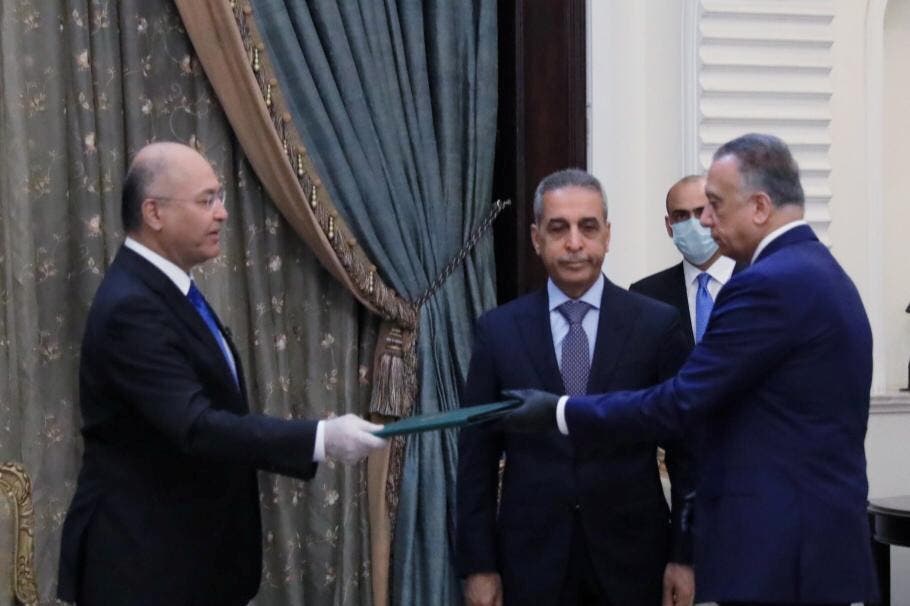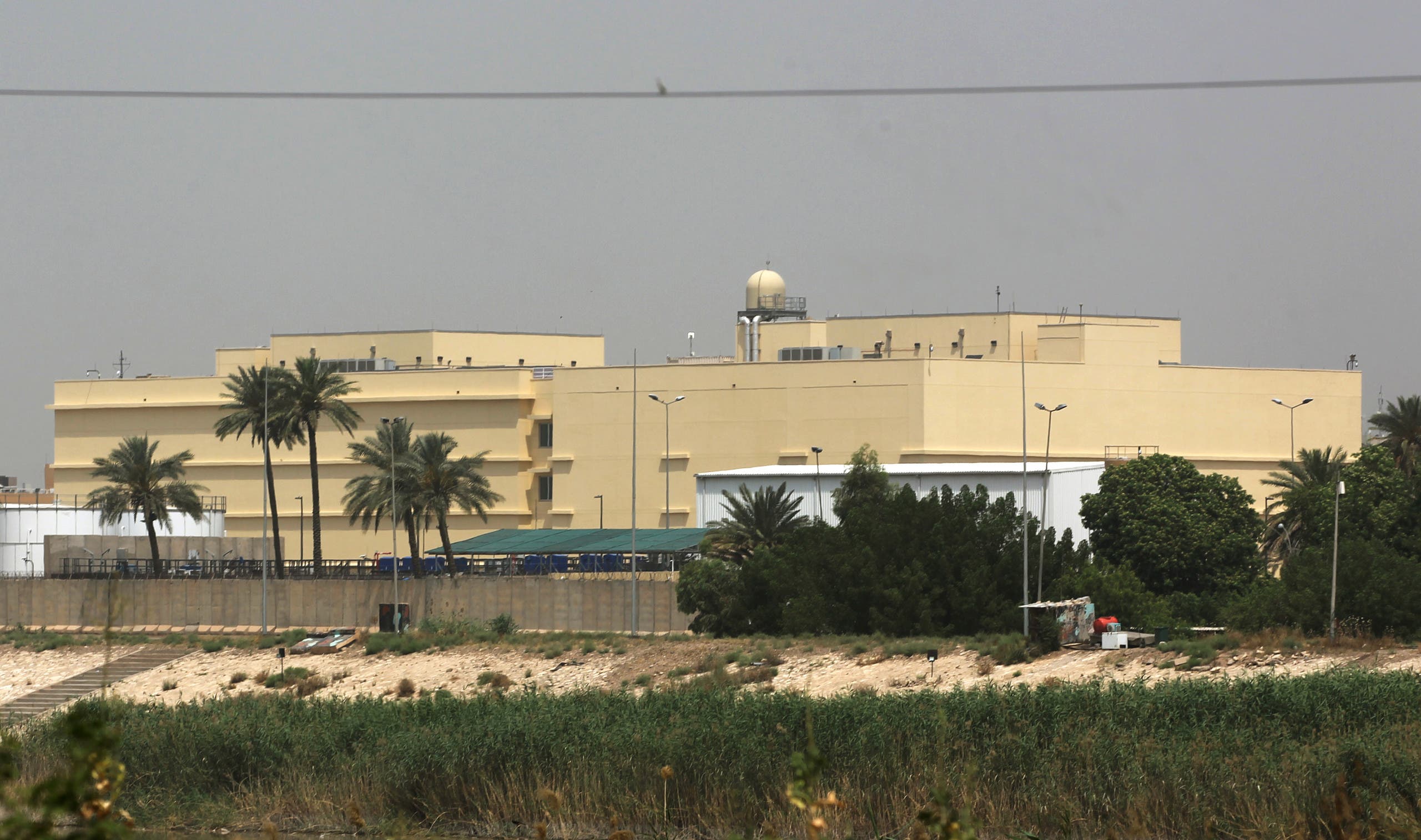US warns Iraq of embassy closure in Baghdad if attacks by Iran-backed groups persist
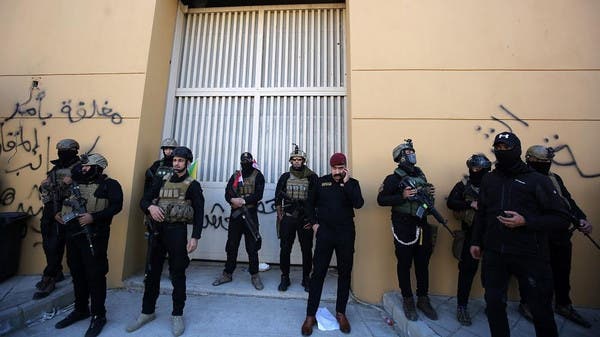
Members of Iraq’s security forces stand guard outside one of the gates of the US embassy in Baghdad’s Green Zone. (AFP)
The Trump administration has warned Iraq that it will close its embassy in Baghdad if the government does not take swift and decisive action to end persistent rocket and other attacks by Iranian-backed militias and rogue armed elements on American and allied interests in the country, US, Iraqi and other officials said Monday.
